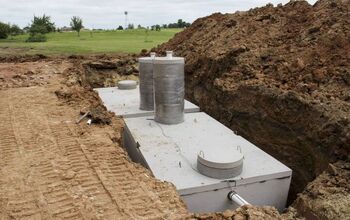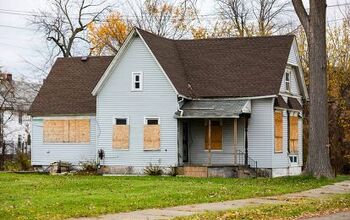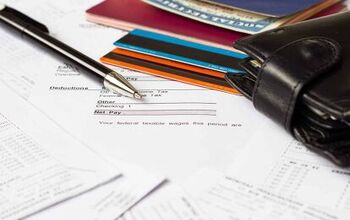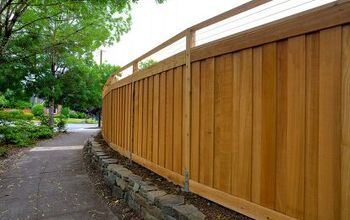Power Goes Off, Then Comes Back On? (Here's Why)

It is understandable to be concerned when your power goes out and comes right back on. The power can go out without explanation and come right back on baffling any homeowner. So, what does it mean when the power goes out and comes back on, and should you be concerned?
The most common reason for power to go out and come right back on is that the circuit breaker tripped or you overloaded your circuit. Bad breaker switches and storms outside can make the power briefly go out and come back on. Limit how many electrical appliances you plug in so that you don’t overload the circuit and knock the power out.
There is no need to panic if your power goes out and comes right back on. The cause is usually something as simple as a tripped circuit breaker or ad weather. Follow along as we explore what it means when your power goes out and comes back on right away.
Do You Need Electricial Wiring or Panel Upgrade Services?
Get free, zero-commitment quotes from pro contractors near you.

Why Did My Power Go Out and Come Back On?
It typically means that something tripped your circuit breaker if your power goes out and comes back on. However, it isn’t always as simple as that, and it can point to more serious problems such as a short circuit in some cases. Let’s take a look at the 5 main reasons why your power can go out and come right back on.
Circuit Breaker Tripped
Older circuit breakers can knock the power out in the entire house if they trip. The power generally comes back on right away in this case, but it can be alarming at the time. This is common in old homes with a single circuit system, and the power can go out and come back on right away if it trips.
Check to see how old your circuit breaker is if it frequently trips and knocks the power out. The average circuit breaker lasts for 35 years, but they are prone to problems after roughly 25 years. However, it is a good sign that your circuit breaker can trip because that means it is working as intended.
You should only be concerned if the power continually goes out and comes right back on without explanation. Otherwise, you can take it as a sign that your circuit breaker is attempting to do its job if it trips.
Bad Breaker Switch
A broken switch can affect your home’s power even if the rest of the circuit breaker is fine. Bad breaker switches can turn off power for the area of the house it controls, or even the entire home. Power typically comes back right away if you only have 1 or 2 bad breaker switches.
It costs an average of $45 to replace a circuit breaker switch, or as much as $60. A bad breaker switch generally only affects one area of the house, but it can affect the whole house if you have an old breaker. It is worth it to replace the entire circuit breaker if multiple switches are out and the unit is 30 years old or older.
Overloaded Circuit
It can be dangerous to overload a circuit, and it can cause the power to go out and come back on. You can tell that the problem is an overloaded circuit if you plug too many things into a single circuit. The electrical load can be too much for the circuit breaker and cause it to trip and shut the power off.
The most common way to cause an overloaded circuit is to use too many extension cords. Extension cords can put too much current on a single circuit and overload it. Limit how much any electrical appliances you plug into an extension cord and don’t use too many extension cords.
Christmas time yields the biggest spike in overloaded circuits throughout the year. Unplug and reorganize your electrical problems if your power goes out and goes back on.
Short Circuit
A short circuit occurs when an electrical current goes somewhere other than where it was intended. The shortcut that the current takes can trip your circuit breaker or make the power go out. You may lose power briefly before it comes back on when you have a short circuit.
Electrical appliances such as fans, heaters, refrigerators, and guitar amplifiers can cause a short circuit. Short circuits are dangerous and that’s why your circuit breaker and electrical grid react the way that they do. You lose power because of the interruption and change in the current.
Frayed wires, faulty wiring, and problems within the circuit can cause a short circuit. Hire a professional if an electrical appliance has a short circuit and you lose power. An electrician must fix the damage or you may need to replace the appliance altogether even if the power comes back on.
Bad Weather
Bad weather can cause numerous electrical problems in a house, and that includes briefly losing power. Thunder and lightning storms can make the power go out and come back on suddenly. Lighting strikes deliver thousands of amps which can disrupt your home’s electrical grid and circuit breaker.
Strong winds and rain can affect the power lines in your neighborhood and cause a brief or long power outage. In serious cases, a home can lose power for days if lighting or wind damages a power line nearby. Some storms can directly damage your breaker panel and you may need to replace it in the aftermath.
Luckily, you won’t generally have to worry about serious damage if the power comes right back on. Power returns to most homes quickly as long as no trees fall on your power lines.
How To Pinpoint The Source Of Your Flickering Power
If you’re wondering where the power flickering is coming from, there are some ways to get a general idea of where your circuit failure happens to be. These tips can help you provide insight to your electrician:
- If your power doesn’t usually flicker and you’re in the middle of the storm, chill out. While flickering power can do damage to your appliances, it’s not a problem inside your home. This is most likely because a wire got hit by lightning or due to a downed power line.
- If your power flickers throughout your home on a regular basis, call an electrician. This could be an outdoor problem, or it could be faulty wiring near one of your key connections inside the house. It could also be due to a faulty circuit breaker.
- If the power in a single room keeps going out but doesn’t turn back on, check your circuit breaker. You might be overloading the breaker for that room. Unplug some of your devices, and replace the fuse on your breaker. This should solve the problem.
- If your power flickers in a specific set of rooms, check the connection from the circuit breaker to those rooms. If you don’t see anything there, it could also be due to a major connection that helps power your rooms.
- If the flickering is relegated to a specific room or outlet, check the outlets in the room. Strip surge protectors might be worn out and in need of replacement. Give that a try, to see how it works. If you have a room-specific breaker, you might also need to check that area if nothing improves.
Is Faulty Wiring Dangerous?
It can be. When you have faulty wiring that causes power to flicker, there’s a chance that the wiring might be damaged, overheated, frayed, or exposed. When wiring is exposed or overheated, there is a notable risk of fire. You should not use any outlet that’s connected to faulty wiring because of this.
Many major house fires have been started as a result of frayed or exposed wires coming into contact with the wrong materials. To prevent this from happening to you, you need to call an electrician as soon as you can.
How Much Does it Cost to Hire an Electrician
The bad news about having flickering lights is that you probably will need to call in a professional. The good news is that most of the issues surrounding flickering power are relatively easy to fix. This ends up dropping the average price of a typical electrician call pretty significantly.
On average, an electrician will cost between $100 and $550 to fix problems that cause flickering power. This can include things like fixing breakers, repairing switches, and also doing minor wiring repairs. If you need more advanced electric work, such as upgrading your circuit breaker, things get steeper. Replacing a circuit breaker can cost over $1000 easily.
Can Homeowners Insurance Pay For Electric Repairs?
It depends on how the repairs became necessary. If it’s regular wear and tear, then your insurer won’t cover it since it’s considered to be part of your home’s maintenance. However, if your wiring issues came about as a result of a storm, flood, vandalism act, or other similar peril, you might have a chance to file a claim.
A good rule of thumb is to call your homeowners’ insurance company if you have reason to believe that the flickering was a result of a peril your home recently went through. It can’t hurt!
Do You Need Electricial Wiring or Panel Upgrade Services?
Get free, zero-commitment quotes from pro contractors near you.

Related Questions
How long does it take for power to come back on?
It can take up to 7 days or even longer for the power to come back on if there is a downed power line. The power can come back on in as little as 10 minutes during bad weather, but it depends on the weather conditions. Lighting and fallen trees can completely ruin power lines around your house, and it can take weeks for power to return after a natural disaster.
What should I do if the power goes out?
Run a generator outside of your home if it is safe to do so as long as there isn’t extreme weather. Don’t use any gas products indoors during a power outage because there is no ventilation. Minimize how often you open the refrigerator or freezer because it will le the cold air out and cause your food to spoil.

Ossiana Tepfenhart is an expert writer, focusing on interior design and general home tips. Writing is her life, and it's what she does best. Her interests include art and real estate investments.
More by Ossiana Tepfenhart



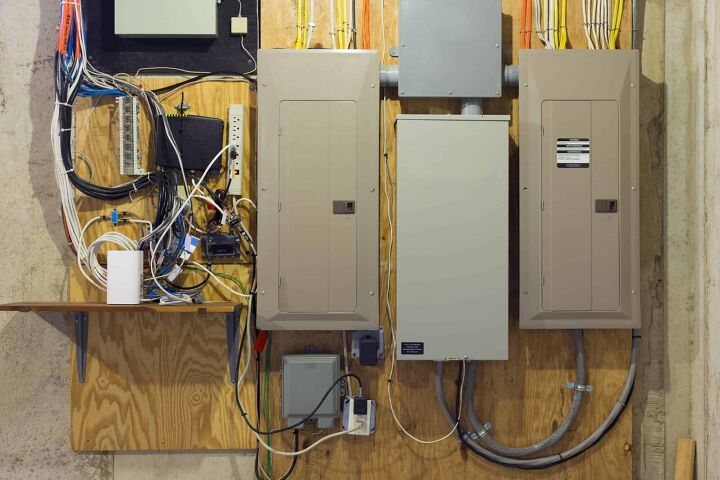







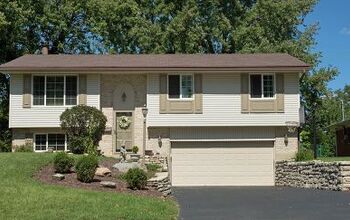
![Finishing Basement Without Permit [Is It Really Illegal?]](https://cdn-fastly.upgradedhome.com/media/2023/07/31/9070078/finishing-basement-without-permit-is-it-really-illegal.jpg?size=350x220)





